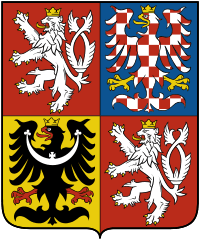The National Institute of Public Health aims at spreading awareness about the correct use of antibiotics with its new project supported by EEA and Norway Grants.

- ←
- →
Published
Antibiotics prescribed for the treatment of viral diseases, e. g. flu, excessive use of broad-spectrum antibiotics or insistence from the patient’s side to prescribe these drugs. This all leads to so-called antibiotic resistance, which causes over thirty thousand deaths in Europe each year, to grow. The project of the National Institute of Public Health supported by EEA and Norway Grants focused on patients’ and doctors’ education should help prevent the issue in the Czech Republic.
If the change wouldn’t come, there would be up to 10 million deaths annually due to infections caused by multiresistant microorganisms in 2050. This information is stated by WHO projection. Resistant microorganisms would become one of the most common causes of death and would overtake cancer or cardiovascular diseases.
Lack of feedback prevents the improvement of the situation. According to the Czech Chamber of Pharmacies’ research, approximately every fifth citizen is mistaken that antibiotics are efficient against cold and flu. The problems are also on the side of the doctors. “Studies show that up to half of the antibiotic indications are wrong. Mostly the so-called wide-spectrum antibiotics are overused. There are more reasons for doing so. Their using is often easier, a wider spectrum of efficiency gives the impression of possible better curative effect, but they are riskier from the aspect of resistance of bacteria. We have a so-called antibiotic of choice for each disease, which is the drug that should be prescribed primarily because it is the best one against specific infection,” explained Helena Žemličková, head of National Reference Laboratory for Antibiotics of National Institute of Public Health. In addition, the costs of the health insurance system for the misuse of antibiotics are estimated at one billion CZK (circa 38,5 mil EUR) per year.
The project of National Institute of Public Health supported by EEA and Norway Grants should reverse this adverse development. It is in Norway that the least antibiotics in the world are consumed and the Czech side can use the experience of a Norwegian partner. “The five-year project will start at the beginning of the next year and run approximately until the end of 2023. Almost 68 million CZK (note: circa 2,6 mil EUR) are earmarked for it,” said Petr Čermák from the Department of European Funds and Investment Development of the Ministry of Health.
The project will focus primarily on extensive information campaign for the general public, which has not yet taken place in the Czech Republic Data from other countries where similar awareness-raising activities have been carried out, such as France, show a significant reduction in prescribed antibiotics in the respiratory season – especially in autumn and winter. The campaign website will be created, and it will also be about communication on social media, online advertising, and promotion on television, radio, and press. One of the important target groups will be parents.
The second part of the project will focus on doctors. A team of professionals will prepare expert recommendations on the use of antibiotics for them, which they will be introduced to at seminars throughout the Czech Republic. About seven hundred doctors will be trained. Selected doctors will then receive feedback about prescribing antibiotics in their own practice. Regional coordinators will also be trained to promote the correct prescription. The expected result is the improvement of the practice of prescribing and using antibiotics to stop the upward trend in consumption.

